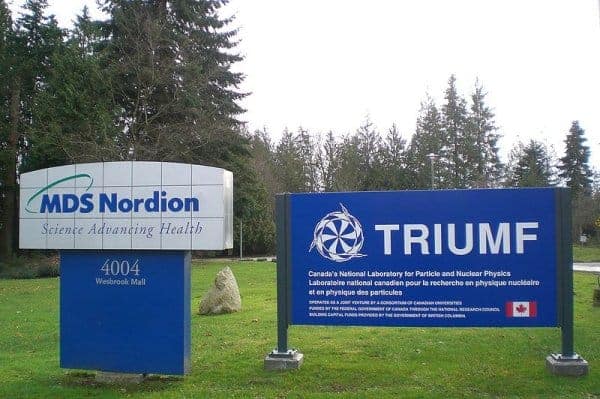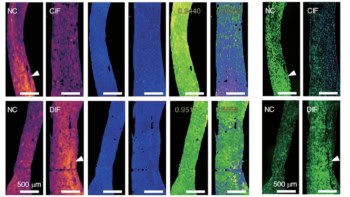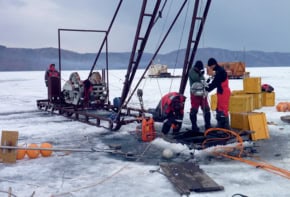
Canada’s TRIUMF accelerator lab is teaming up with the medical isotope supplier MDS Nordion to study the feasibility of making molybdenum–99 in a linear accelerator — rather than in nuclear reactors as is done today.
TRIUMF, which is in Vancouver, and Ottawa-based MDS Nordion, also announced today that they will create a plan to commercialize the accelerator-based production of the isotope – which is used in around 80% of all diagnostic nuclear medicine tests worldwide.
The announcement comes amidst growing concern about the age, safety and reliability of reactors that produce molybdenum–99 following a series of well publicized technical problems and unscheduled plant shutdowns. New reactors are urgently needed to prevent future shortages of molybdenum–99 — but gaining consent, funding and political support for such plans is proving to be far from easy.
Intense photon beam
In November 2008, however, TRIUMF — along with the University of British Columbia, and the firm Advanced Applied Physics Solutions (AAPS) — released a report suggesting that a reactor may not be needed. Researchers instead proposed firing a highly intense photon beam — generated by a linear electron accelerator — at a uranium target to create molybdenum–99.
Although accelerator-based processing would need much more electrical power to run than a reactor-based facility, the advantage is that it would be possible to stop and re-start isotope production according to demand, which cannot be achieved with a nuclear reactor.
Another benefit of the new technique is that natural uranium targets can be used — whereas the reactor method requires highly enriched uranium targets that are difficult to transport and handle.
Building to start next year
Construction of such a facility at TRIUMF is scheduled to start in 2010 with tests slated for 2013.
MDS Nordion and TRIUMF already collaborate on the production of other medical isotopes using cyclotron accelerators.



